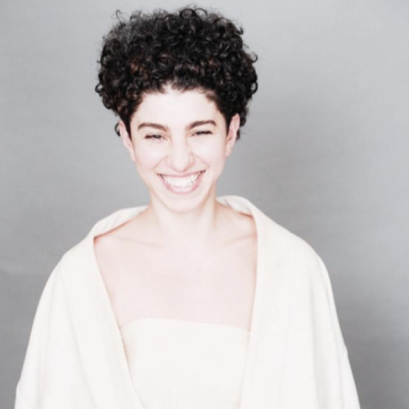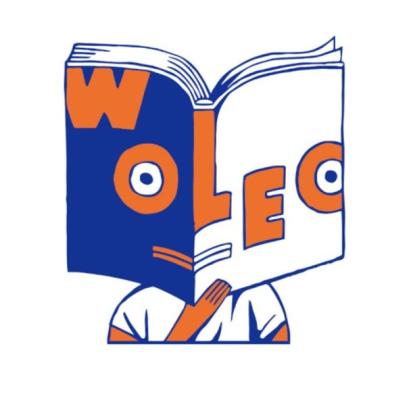
CLIC nodigt jullie graag uit voor de eerstvolgende WOLEC-sessie die plaatsvindt op maandag 1 december van 12:00 tot ten laatste 13:30 in 5C.03. Spreker Hadas Zahavi (Columbia University, momenteel writing resident bij CLIC) zal een lezing geven over haar project "Warketing Peace".
Hadas Zahavi is de oprichter en directeur van het Columbia University Global Center for Peace Innovation (https://peacecenter.french.columbia.edu), waar ze een interdisciplinair laboratorium, een pedagogisch centrum en een galerie voor hedendaagse kunst leidt. Haar onderzoek bevindt zich op het snijvlak van vredesstudies, hedendaagse Franstalige literatuur en mediatheorie en onderzoekt hoe het moderne beeld van vrede wordt gevormd binnen landen die zichzelf als “vreedzaam” definiëren, terwijl ze diep verwikkeld zijn in oorlog; door wapenhandel, militaire interventies, geërfde trauma's en gemilitariseerde vervuiling, en hoe hedendaagse literatuur op deze realiteiten reageert door nieuwe vormen van getuigenis en verzet te creëren. Dit werk komt samen in haar binnenkort te verschijnen boek Comment témoigner d'une guerre qu'on n'a pas vécue (Hermann, 2025), dat ontstaan is uit haar doctoraatsonderzoek aan de Sorbonne Nouvelle–THALIM–CNRS–TAU en haar Fulbright-postdoctorale fellowship aan Princeton University, met gerelateerde artikelen gepubliceerd in tijdschriften als Oxford French Studies, Genre and Memory, Mind & Media (Cambridge University Press).
De voertaal is het Engels. Een broodjeslunch wordt voorzien. We vragen u om uw aanwezigheid ten laatste tegen 28 november via deze link te bevestigen. Voor meer informatie over WOLEC, klik hier.
Tot dan!
*****
CLIC is excited to invite you to the next WOLEC session, taking place on Monday 1 December from 12:00 till 13:30 in room 5C.03. Hadas Zahavi (Columbia University, currently a writing resident at CLIC) will give a lecture on her project "Warketing Peace".
Hadas Zahavi is the Founding Director of Columbia University Global Center for Peace Innovation (https://peacecenter.french.columbia.edu), where she leads an interdisciplinary lab, pedagogical hub, and contemporary art gallery. Positioned at the intersection of peace studies, contemporary Francophone literature, and media theory, her research examines how the modern image of peace is shaped within nations that define themselves as “peaceful” while being deeply entangled in war; through the arms trade, military interventions, inherited trauma, and militarized pollution, and how contemporary literature respond to these realities by creating new forms of witnessing and resistance. This work culminates in her forthcoming book Comment témoigner d’une guerre qu’on n’a pas vécue (Hermann, 2025), developed from her doctoral research at Sorbonne Nouvelle–THALIM–CNRS–TAU and her Fulbright postdoctoral fellowship at Princeton University, with related articles published in journals such as Oxford French Studies, Genre, and Memory, Mind & Media (Cambridge University Press).
The lecture will be held in English. A sandwich lunch will be provided. We ask you to confirm your presence via this link by 28 November. For more information about WOLEC, click here.
We hope to see you there!

Abstract
“Peace,” this lecture argues, is no longer a state we inhabit but a commodity—branded, packaged, and sold by those who profit from war. Warketing Peace reveals how three iconic corporations—Michelin, Kodak, and Burberry—transformed peace into a consumer fantasy of leisure, mobility, and domestic photography to market their initially unsuccessful inventions in the late nineteenth century. When WWI erupted, this fantasy was redirected: war itself was reframed through the same language of pleasure, even as these goods were militarized. In the postwar era, all three strands—romanticized peace, aestheticized war, and the material infrastructure of violence—were fused into a single logic of consumption that expanded through colonial markets and reshaped global imaginaries. This dual commodification now underwrites a worldwide ecopolitical order in which Western powers profit from the illusion of peace while driving militarized economies, environmental degradation, and structural inequality. Bridging peace studies, the history of technology, and cultural critique, Warketing Peace reveals how peace and war have become two facets of the same commodified reality.
